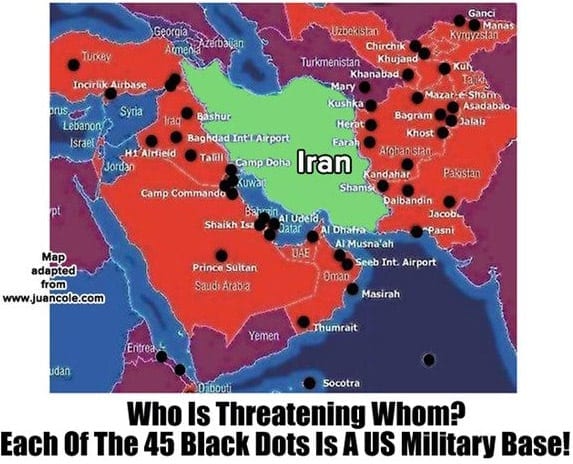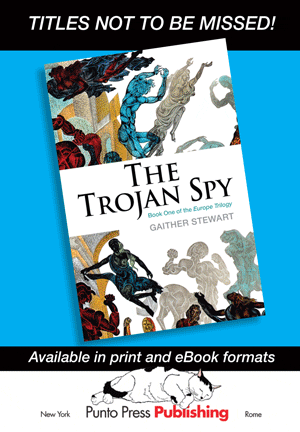The Iran deal, explained by a nuclear expert
[dropcap]T[/dropcap]he first person I called when negotiators in Vienna released the final text of the Iran nuclear deal was Aaron Stein, a nuclear nonproliferation expert at the Royal United Services Institute. Stein is a prolific writer and commenter on nuclear issues, and particularly on Iran’s nuclear program. (He is also doctoral fellow at the Geneva Centre for Security Policy and a non-resident fellow at the Atlantic Council.) And he is a die-hard wonk — someone who cares first and foremost about understanding the issues, rather than about picking a side.
[box type=”info”]
Updated by Max Fisher on July 20, 2015 | @Max_Fisher max@vox.com Aaron Stein: They would do Fordow 2.0. [Fordow was previously a site of secret Iranian nuclear development.] They would siphon off uranium from an undeclared mine, which we can get to in a second why that’s not really possible [under the deal].
vox.com
“THIS WILL TAKE US INTO 2040”
Then they would build centrifuges without us knowing, because a centrifuge facility is tiny. You don’t really pick them up; we’ve never really been able to find them when they are up.
..
We can get around that [centrifuge problem] if we know where every centrifuge is made, if we know where the machines that make them are sitting. And in this deal, those factories are also subject to monitoring. And that’s really where the deal exceeds in all areas. It’s a 25-year sunset on this, so this will take us into 2040. So it’s not the next president’s issue.
. When I say that, I mean that it’s a very good nonproliferation deal. If you want it to focus on the problems with Iran running around in Iraq or Syria, this deal is not for you. If you are focused on the nuclear issue specifically, it’s a very good deal. It makes the possibility of Iran developing a nuclear weapon in the next 25 years extremely remote. It would require a Herculean effort of subterfuge and clandestine activity. It’s important that it puts inspections in place. Inspections are not always designed to catch you red-handed but rather to elicit a response about what it is that you are up to. The threshold for pain is so high that you don’t want to break the rules, and I think this puts that in place while also making it extremely difficult to cheat.
Aaron Stein: It exceeds or is directly in line with everything in the US fact sheet that was put out [in April]. I thought the US fact sheet was a great deal, and I think this is a good deal.
Max Fisher: The last time we talked, in April when the framework came out, you really emphasized inspections as something that was crucial for this. You seemed to have a very positive take on how it looked in the framework. Is that still how you feel, looking at the final deal?
..
Aaron Stein: Yes. One thing that was not in the framework deal that’s fleshed out now is the thing with flow forming machines.
Flow forming machines are how you make centrifuges. If you have one stashed away out in the middle of the desert in a facility, we would have no idea. In the agreement, they have to account for all of their flow forming machines, give us a list of where they are, and then put them under monitoring. The counter to that is they just won’t tell us, they won’t declare everything. That’s to be expected, so don’t trust that.
…
Max Fisher: Let me ask you about sanctions and how they come off. I know this was a big question mark after the framework deal: the timing of it, mechanisms for removing the sanctions, and then of course mechanisms for reintroducing them. How does this look in the final deal?
..
Aaron Stein: Make no mistake about it, this is a pathway for them basically to have all the major sanctions against them, related to the nuclear issue, removed. Frankly, I don’t see anything particularly wrong with that; sanctions are a coercive tool to force a policy change. The policy change we wanted was to place limits on Iran’s enrichment program in perpetuity. We got that, and so I don’t see that being a big problem.
I was always skeptical of “snapback” [the provision that any sanctions would snap back into place if Iran is caught cheating] because of the likelihood that China or Russia would veto any such move to go back. It looks like they were able to get around that. But once these sanctions start to come off, I think it will be very difficult to then put them back on, even if the snapback is relatively strong on paper.
..
Max Fisher: How long does it take for sanctions to come off, then?
..
Aaron Stein: Adoption, it says here, will occur 90 days after the endorsement by the UN Security Council. Once the UN Security Council endorses it, we have 90 days in which they have to meet all their obligations, and then these sanctions will start to come off.
My understanding is that they begin to be removed immediately, particularly the EU sanctions and the UN Security Council sanctions. Those will be replaced with this new UN Security Council resolution.
This is all contingent on the IAEA track being resolved, which it looks like it will. That was a concession, by the way, to the Iranians. They’re using Iranian language in the framing of the IAEA, calling it a road map. It creates a pathway for them to wiggle out from underneath the PMD issues, which if we’re going to solve this you have to get over the PMD issue.
.. .. The real concerns about Iran’s PMD were weapons-specific tests. I’m talking about the development of a shock implosion system to generate a nuclear explosion and the conducting of weapons-specific mathematical and computer modulate tests.
Aaron Stein: A lot of it has focused on Parchin. [Iran had conducted some past nuclear work at its military facility at Parchin.] Parchin is a red herring; I have no idea why the IAEA is so hung up on Parchin. They won’t find anything there — it’s completely stripped of anything of value.
..
Max Fisher: So the issue for the nuclear deal is that, in order for the deal to go forward, Iran has to satisfy the IAEA that they have sufficiently disclosed information about past weapons research?
..
Aaron Stein: Yes. They’ll find some creative language to get around this, there’s no doubt in my mind. There are very few people who seriously believe that Iran wasn’t up to no good between 1985 and 2003. The intention of this agreement is to take the weapons option off the table for the next 25 years, and the agreement does that.
In the past, the way the IAEA resolved this is by using language that didn’t call Iran a liar flat-out, but rather said that Iran’s explanation is not inconsistent with how this may have happened, something along those lines. The agency will basically cast out on Iran’s explanations without saying so, or say so in a very diplomatic language.
.. .. Aaron Stein: That was a red herring from the beginning. The only inspection protocol where you’re going to have writ large access to every military site would be the Iraq-style inspections that we got after the 1991 Gulf War. What country is going to give you access to their military sites that are not affiliated with the nuclear issue? This was all about Parchin. Will they get access to that little shack out in the boonies of this large base to go look at what used to be a detonation chamber that doesn’t exist anymore? The detonation chamber is not there, the ground around it has been razed, they’re not going to find anything at Parchin. This came down to a pissing contest about whether or not we could go walk into Parchin, which is irrelevant. In the deal they’re going to give managed access to Parchin, and you know what? We’re going to lose on this because they’re not going to find anything at Parchin. All of this will come down to nothing. I think what will happen is the IAEA will submit a detailed questionnaire and Iran will respond, and then the agency will review those responses and then draw a conclusion from them.
…
..
Aaron Stein: I think so, yes. The IAEA was involved in this [deal], particularly with these final stages. This will not hold up the implementation of the deal.
..
Max Fisher: Are there fights ahead that could hold it up?
.. … .. Iran knows what it’s doing going into this. They know the consequences if they screw up here, and the provisions are very tight, the inspection regime is very robust. The likelihood of getting caught is near 100 percent. The consequences are far more than just having your sites bombed. It’s that they will have reneged on the agreement that basically the whole world supports, except for the Republicans and the Israelis and the Saudis.
Aaron Stein: If sanctions are implemented, then, absent changes, the military force issue would come back. I think the US hand is actually strengthened in this, to be honest with you. A full accounting of where everything is [gleaned from invasive inspections and monitoring] is a wonderful targeting mechanism for the Pentagon. If we know where all of their stuff is, you can make far more accurate, detailed maps about where to put a cruise missile.
![]()
FACT TO REMEMBER:
IF THE WESTERN MEDIA HAD ITS PRIORITIES IN ORDER AND ACTUALLY INFORMED, EDUCATED AND UPLIFTED THE MASSES INSTEAD OF SHILLING FOR A GLOBAL EMPIRE OF ENDLESS WARS, OUTRAGEOUS ECONOMIC INEQUALITY, AND DEEPENING DEVASTATION OF NATURE AND THE ANIMAL WORLD, HORRORS LIKE THESE WOULD HAVE BEEN ELIMINATED MANY YEARS, PERHAPS DECADES AGO. EVERY SINGLE DAY SOCIAL BACKWARDNESS COLLECTS ITS OWN INNUMERABLE VICTIMS.
![]()
[printfriendly]
REBLOGGERS NEEDED. APPLY HERE!
Get back at the lying, criminal mainstream media and its masters by reposting the truth about world events. If you like what you read on The Greanville Post help us extend its circulation by reposting this or any other article on a Facebook page or group page you belong to. Send a mail to Margo Stiles, letting her know what pages or sites you intend to cover. We MUST rely on each other to get the word out!
And remember: All captions and pullquotes are furnished by the editors, NOT the author(s).
What is $5 a month to support one of the greatest publications on the Left?


